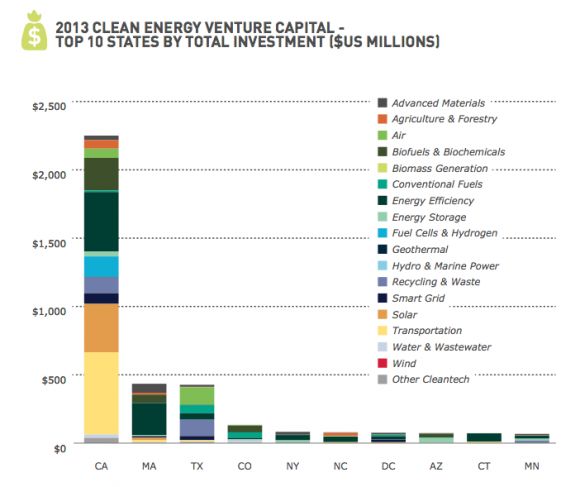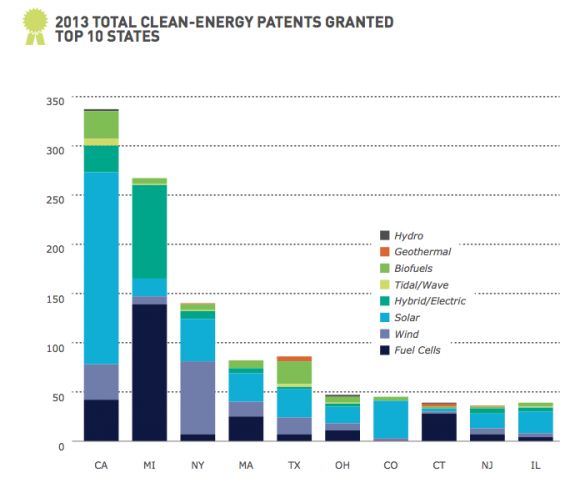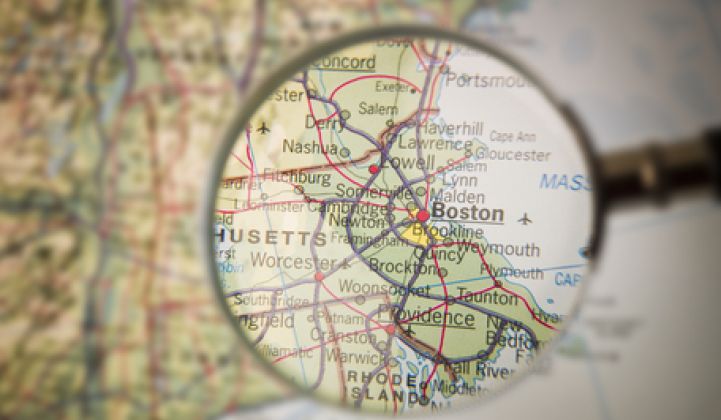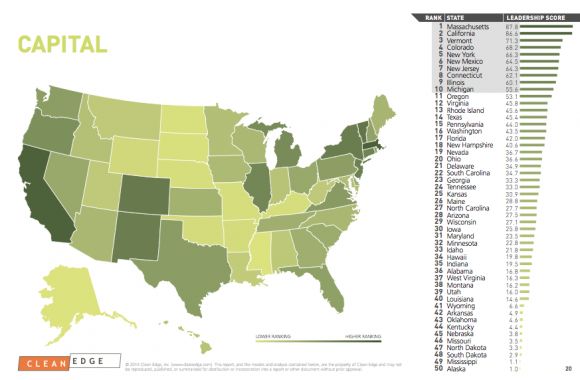Every cleantech startup company wants the same things: access to capital, a local pool of young talent, a strong incubation network and vision from policymakers.
Many states offer one or a couple of these, but only a handful have the full package. So where are these states?
According to Clean Edge's latest leadership index, they're scattered everywhere throughout the country. But not surprisingly, they're also typically the most forward-thinking when it comes to policies supporting clean energy.
When accounting for clean energy policy support, climate goals, efficiency targets, transportation infrastructure and a host of other factors, the overall list of the top ten clean energy states nationwide is somewhat obvious. California tops the list, with Massachusetts, Oregon, Colorado, New York, New Mexico, Washington, Illinois, Vermont and Connecticut following.
But there's much more to creating a healthy industry than top-down policy. Nearly every state in the upper tier of the rankings also happens to be the best for setting up a business due to their support of human, intellectual and financial capital.
The map below illustrates the ten states that provide the full suite of capital needs for startups: strong universities, research labs, incubation networks and venture capital. Massachusetts, well known for providing all of those factors, tops the capital-related list once again.
Source: Clean Edge Leadership Index (click to enlarge)
Other states like Michigan, Illinois and Virginia may not seem like the best states in which to build a cleantech company. However, as Clean Edge points out, they are some of the only states with a Department of Energy lab, a clean energy accelerator and a business school with a renowned green MBA program.
"They are the only states receiving credit for having all three cleantech-related institutions tracked by our Index," wrote the authors.
When isolating some of the factors, the rankings change. For easily understandable reasons, California and Massachusetts top the list of venture investments in cleantech. But Texas comes in at a close third. And a couple other states not in the top-ten capital rankings ended up in the top-ten list for venture investments. (Although the numbers are very small compared to the three best markets.)

Although there's much debate about the value of the U.S. patent system, there's no doubt that many startups developing new technologies rely on patents to gain a competitive advantage. (Tesla's Elon Musk might argue with that.)
Eight of the ten states topping the overall rankings also happened to grant the most patents to clean energy firms. However, this not the best indicator of state performance. Arizona, Delaware and New Hampshire have all granted lots of patents, but they are all soundly in the middle of the rankings when factoring in the full support environment for startups.

Interestingly, many of the states in the overall top-ten list have some of the highest tax rates in the country (although many of them do provide tax breaks for clean energy startups and project deployment). California, Connecticut, New York, Illinois and New Jersey -- all states with the best overall markets for cleantech companies -- feature some of the highest real estate taxes, income taxes and sales taxes in the country.
The common wisdom among Washington, D.C. politicians is that addressing the issue of taxes is the best way to foster growth of new businesses. Lowering taxes is no doubt an important factor for helping companies and entrepreneurs thrive. However, data shows that lower taxes provide "no guarantees when it comes to...economic development."
For industry observers, participants and stakeholders who want to develop and expand the cleantech market, the top-performing states prove that it takes a range of enabling factors to attract top talent and ensure growth.




